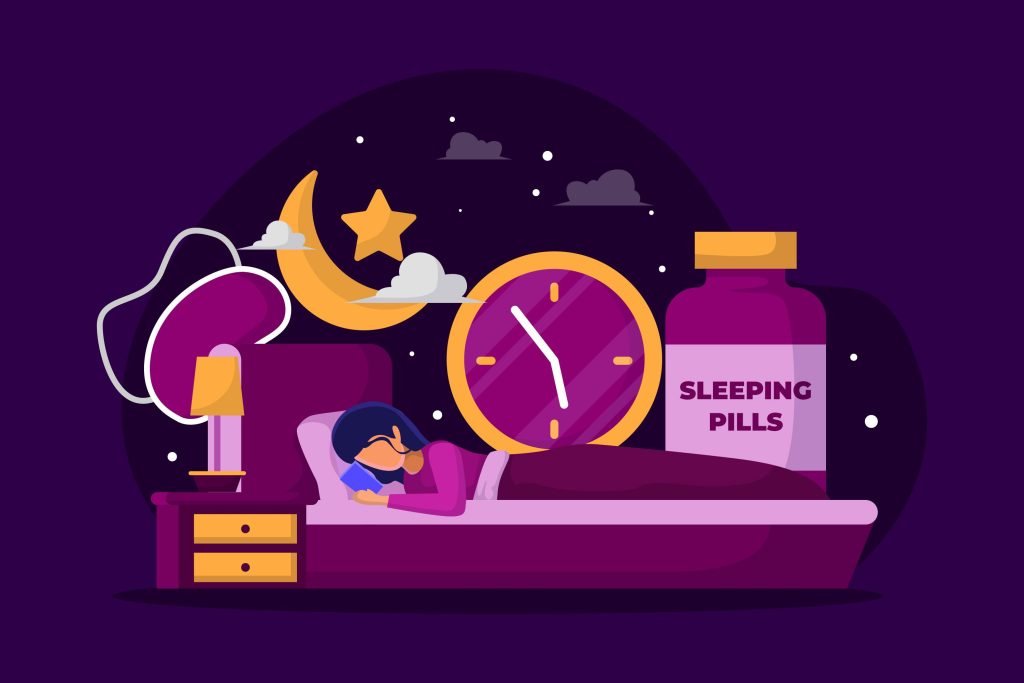
Sleep is a fundamental aspect of our daily lives, influencing our overall well-being, productivity, and cognitive abilities. While we often focus on the duration of sleep, the timing of waking up is equally important. The optimal wake-up time can significantly impact our energy levels and mental clarity throughout the day. In this article, we will delve into the science of sleep, circadian rhythms, and explore the factors that contribute to determining the best wake-up time for a productive and fulfilling day. Get ready to unlock the secrets of a well-rested mind and body, and embrace the science-backed approach to waking up at the perfect time.
Understanding Circadian Rhythms: Nature’s Internal Clock
Our bodies are equipped with an internal timekeeping system known as the circadian rhythm. This biological clock regulates various physiological processes, including sleep-wake cycles, hormone production, and body temperature. It works on approximately a 24-hour cycle, influenced by external cues such as sunlight and darkness. Understanding our circadian rhythms is essential for optimizing our wake-up time and promoting overall sleep quality.
The Power of Sleep Stages: Navigating REM and Non-REM Sleep
Sleep is a dynamic process consisting of several stages, each serving unique purposes for our body and mind. Non-rapid eye movement (NREM) sleep comprises the initial stages of sleep, promoting physical restoration and memory consolidation. Rapid eye movement (REM) sleep, occurring later in the sleep cycle, supports cognitive functions, creativity, and emotional processing. Waking up at specific points within these sleep stages can determine how refreshed and alert we feel upon rising.
Calculating Sleep Cycles: The Key to a Smooth Awakening
The average sleep cycle lasts approximately 90 minutes and includes both NREM and REM sleep stages. Waking up at the end of a sleep cycle ensures a more natural transition from sleep to wakefulness, preventing feelings of grogginess and sleep inertia. Utilizing sleep cycle calculators or smart alarm clocks can help determine the best wake-up time based on your intended bedtime.
Factors Influencing Wake-Up Time: Lifestyle and Individual Variations
While our biological clocks play a significant role in determining our ideal wake-up time, lifestyle factors and individual variations also come into play. People with different chronotypes—whether they are early birds (morning people) or night owls (evening people)—have varying preferences for sleep and wake schedules. Additionally, work schedules, social commitments, and personal preferences can influence when we choose to wake up.
Morning Light: Nature’s Wake-Up Signal
Exposure to natural morning light is a powerful cue for our biological clocks, signaling the start of the day. Morning light exposure helps regulate our circadian rhythms, reinforcing the wake-up time and promoting alertness. Whenever possible, spending time outdoors in the morning can aid in setting a healthy sleep-wake schedule.
The Role of Melatonin: Understanding the Sleep Hormone
Melatonin is a hormone produced by the pineal gland in response to darkness, helping initiate the sleep process. As morning light increases, melatonin levels decline, signaling the body to wake up. Disruptions in melatonin production, such as exposure to artificial light at night, can affect our ability to wake up feeling refreshed.
Consistency is Key: Establishing a Sleep Routine
Maintaining a consistent sleep schedule, including wake-up times, is vital for aligning our biological clocks and optimizing sleep quality. Irregular sleep patterns can lead to circadian desynchrony, resulting in difficulties falling asleep or waking up at the intended time. Aim to establish a regular sleep routine, even on weekends, to promote a well-regulated sleep-wake cycle.
Individualizing Your Wake-Up Time: Listen to Your Body
While science provides valuable insights into sleep and wakefulness, individual differences should not be overlooked. Pay attention to how you feel upon waking up at different times, and listen to your body’s signals. Experiment with different wake-up times to discover the most energizing and productive schedule for you.
Optimizing Your Wake-Up Time: Embracing the Science of Sleep for Enhanced Productivity and Well-Being
In conclusion, understanding the science of sleep and the factors influencing our wake-up time can revolutionize our daily productivity and well-being. By aligning our wake-up time with our circadian rhythms, utilizing sleep cycle knowledge, and prioritizing consistent sleep routines, we can wake up feeling refreshed, alert, and ready to seize the day. Embrace the power of a well-timed wake-up call and unlock the potential of your daily achievements through the science of sleep.


